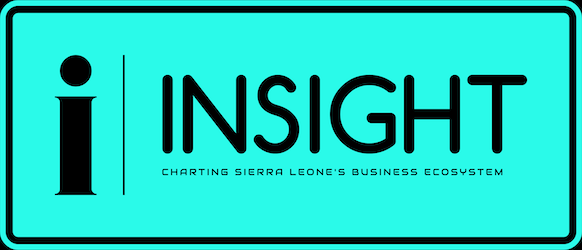
“Higher and tertiary education has an important role to play in fuelling and sustaining economic growth, international competitiveness, social development and poverty reduction in Sierra Leone, and as such much more attention needs to be directed at the sector to ensure quality and equitable provision,” says a World Bank Report from 2013.
While we wait for FBC and Njala to get the attention and investment they deserve, a steady revolution in university education throughout the world, means that with a smart phone, good WiFi and a comfy chair, anyone can take a course from Harvard, Princeton, MIT and a good number of other top universities thanks to the MOOC revolution.
MOOCs or Massive Online Open Courses are made up of course content from mainstream universities offered entirely online. Most are similar to traditional online higher education courses where students watch lectures, read assigned material, participate in online discussions and forums, and complete quizzes and tests on the course material. The wonderful thing about MOOCs though is that they are very often free or if not, they are certainly thousands of dollars cheaper.
For the Sierra Leonean learner, where obstacles to learning in-country or abroad, include cost, quality, visas, foreign exchange, entry requirements, family responsibilities or career/business obligations – the MOOC movement could be our saving grace.

Critics argue that MOOCs won’t work in Africa because we’re plagued by intermittent power, unreliable internet, and most students need substantial learning support. But Kepler (http://www.kepler.org), a MOOC model
pioneered in Rwanda, proves otherwise. Initiated by a small nonprofit called Generation Rwanda, Kepler’s goal is to use MOOCs to deliver a top-tier education to young Rwandans. The Kepler team say: “Our students get the best of online learning paired with in-person seminars — all while students work toward a US accredited degree and a great job after graduation.”
Kepler’s results are encouraging. Eighty-one percent of third year Kepler students have been offered a full-time job. The organisation’s goal is to create a global network of universities, that deliver the skills that emerging economies need at a price that all talented students can afford. For now Kepler is exclusive to Rwanda. For Sierra Leone, it could be a model to aspire to.
MOOCs – Hope or Hype?
Critics protest that MOOCs will mean the end of higher education as we know it. Supporters hail MOOCs as the saviour of higher education in the future. Bringing the world’s best college courses to some of the world’s most disadvantaged people is certainly the hope—and some would say the hype—of the MOOC movement.
Hope
“That is why I like to say that online learning is like a rising tide that lifts all boats — it’ll increase access for those who don’t have access, and will improve learning for those who do.” Anant Agarwal, chief executive officer of edX
Africa’s Internet penetration of 39.3 percent is growing steadily, thanks to investments in broadband and the proliferation of smartphones. The McKinsey Global Institute projects that by 2025, Internet penetration will rise to 50 percent (600 million users) and smartphones will increase six-fold.
For young, ambitious women seeking to better themselves or their opportunities, MOOCs offer a low cost, neutral and safe learning environment.
Both the demand and the costs of higher and tertiary education are increasing, MOOCs enable access to affordable education.
They enhance the existing educational system and supplement student learning for the developed world.
Potential learners gain access to learning opportunities that they didn’t otherwise have, for reasons of geography, disability, gender, illness or cost.
Hype
The market value of the certificate of completion offered on completion of a MOOC course remains to be determined.
Poorer countries have a weaker digital infrastructure to support the bandwidth needed to even view MOOCs, exacerbated by inadequate electricity in rural areas.
MOOCs enrolment could undermine the potential for investment in local education.
MOOCs also have the potential to consolidate inequalities by replacing face-to-face education for the poor by that of online education, while the elite retains access to the real experience of quality education.
African students still retain a great deal of respect for the graduation ceremony, the mortar board and gown and the degree certificate
A number of students in Africa are unfamiliar with computers including basic skills such as launching a programme, typing and closing a programme.
MOOCs don’t work for everyone, especially for at-risk students with lower grades and coming from disadvantaged backgrounds requiring substantial teacher inputs.
MOOCs require skills and motivation possessed by only the very top students.
what students really need is the kind of services instructors provide. How to study, where to find information, critical analysis, learning to have original ideas in what you do, discussion and high-level thinking. All have to be supported and developed by interaction with teachers.
Students need to see a clear continuum between taking a course, getting a certificate for the course and having employers recognise that certificate.
Harvard, Princeton, MIT, Duke, Yale for free
Coursera partners with top universities and organisations worldwide, to offer courses online for anyone to take.
Open2Study is backed by Open Universities Australia (OUA), an Australian leader in accredited online education.
EdX is a non-profit online initiative created by founding partners Harvard and MIT.
FutureLearn benefits from the Open University’s 40 plus years of experience in distance learning and online education.
The Massachusetts Institute of Technology (MIT) goes a step further, allowing students to take free online coursework that counts as credit toward a degree.
Udacity offers nanodegree programmes and credentials, designed for future Web Developers, Data Analysts, Mobile Developers, etc.
South Africa based MOOC SA aims to increase the sharing of knowledge and promote (free) learning through massive open online courses.

Be the first to comment